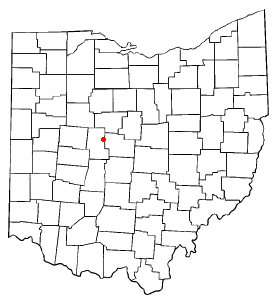“Joe, why aren’t you eating a S’more?”
Ahh, I’m glad you asked. Let’s chat.
S’mores an all American camping classic. If you didn’t eat s’mores by a campfire, did you even go camping?
At our summer camps, S’mores were served as a treat at least once during campfire. To some of you who aren’t familiar with the campfire tradition, it involves the youth sitting around the fire after dusk singing fun and silly songs, performing embarrassing skits and just generally enjoying each other’s company.
The campfire ritual is deeply spiritual and sacred to many of these camps. Time and time again I heard, “this is where I feel God!” I mean, after all, the campfire resembled church. There were people gathered in the name of God, there were songs song together, there was a common meal shared, and there was mutuality. One would think this is want church looks like!
I most certainly did not, in fact the whole campfire ritual was off-putting to me. Yes, it was a new ritual I was not used to, and it wasn’t the sitting around the campfire that I didn’t like.
What I wasn’t a fan of was the bizarre and unnoticed violent messages slipped into songs, skits, and yes even s’mores.
I noticed that the silly, fun songs were often violent and disturbing. I heard songs about little frogs dying, about moose dying, about slitting a rabbit’s neck, about going on a lion hunt, about scary Satan, about early morning birds getting their heads smashed in. To say the least, I was not a fan. I typically would remain sitting while songs like this were song…they were not fun or silly to me because they were advocating for an abuse of our power in connection to animals and other humans. The violence made me terribly sad and angry.
Then there were skits! And sometimes they were silly and fun, but how many times have you seen a camp skit where the punch line of the joke is at the expense of someone else’s humiliation? I saw skits were water was dumped on contestants, I saw skits that talked about throwing a person down a mountain, there were skits about stealing people’s clothes, about calling them suckers, about making them feel embarrassed or ashamed in front of a crowd. Several times I was called on to participate as this contestant and intentionally left in the dark.
(Thankfully I’m pretty camp savvy enough to anticipate the skits that were coming, I’ve only seen them a thousand times). I can’t explain to you the feeling, and since I have less shame than others, it didn’t affect me as I’m sure it would my other friends. Being laughed at is never a good or positive experience, because they aren’t laughing with you when you have been left out of the joke… they aren’t laughing with you when you are the only one getting drenched. They are laughing at your expense.
Lastly, there are the s’mores, a triparte treat of foods created at the expense of others. As a vegetarian, I abstain from eating foods created from the death of other animals annddddddd, believe it or not, marshmallows are made with dead animal parts. They have gelatin in them, the ingredient in jello and starburst and many other products that makes them fluffy and jiggly, gelatinous. Gelatin is made from the grinding up of left over animal parts, like bones, hooves, cartilage, skin, etc. So, I abstained from eating any s’mores with marshmallows.
So what’s wrong with chocolate and a graham cracker? Well, it depends on the brand of chocolate. I have decided to try as best I can to cut out products that profit from extremely poor worker conditions, like low wages, long hours or human rights violations. There is a specific company that is quite notorious for these types of horrific worker conditions, and without naming the specific brand, I am sure you can guess. Cheap chocolate comes at a steep price at someone else’s expense. The alternative would be fair trade chocolate, where you know workers earn fair wages.
And what is left? Just a graham cracker? I’m okay, I’d rather just not eat anything.
My abstention from songs and skits and s’mores might have offended many, but I didn’t care. They invited me into their sacred moments and spaces and I probably defiled them a little. Yet, I got to thinking, how many of them were even examining themselves closely enough to rethink these things?
How many churches have we seen go awry because they let messages or charismatic leaders led them down different paths? Without a healthy skepticism or questioning we just let the wind blow us any which way.
I think that this is how violent songs, shameful skits, and s’mores that kill animals and take dignity away from human beings, wind up into our more sacred rituals.
If we compare s’mores to communion (which at least one camp did), then we are sharing a meal together in Christ’s message. What was that message? I can assure it was not a message condoning violence or shame. And Jesus didn’t just pick any old elements for communion, and I’m positive he wouldn’t be eating marshmallows (they’re made of pork!).
What should we do? I think we need to self-examine and question our habitual practices. If we continue to allow the dignity of others to be mocked during our most sacred rituals, what does that mean our church stands for? Do we condone and endorse violence and shame?
“But Joe, if you ruin all our fun, what will we have left?”
“I don’t know, a graham cracker?”





















